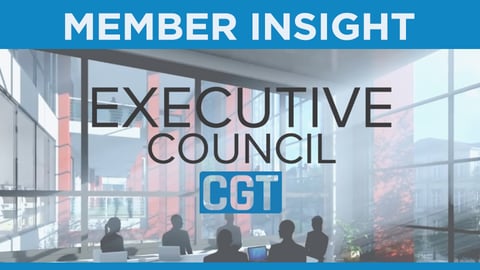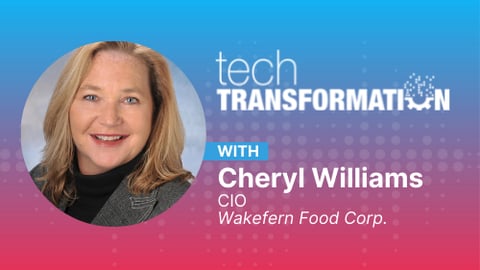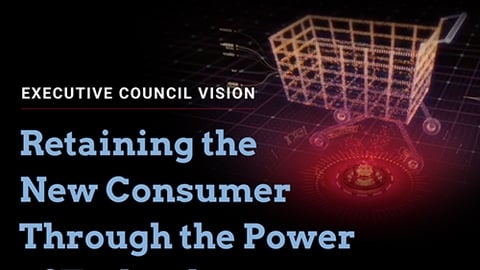Defining the Modern Enterprise: Up Close with Softtek’s David Jiménez
Recruiting and developing talent is a chief concern for all retailers and consumer goods companies today, and it’s not one that’s likely to fade any time soon. As companies seek to forge deep and personalized connections with consumers, it’s more crucial than ever to have committed and passionate employees leading and supporting a company’s mission and culture.
For David Jiménez, managing director, CPG, at Softtek, talent management is a subject he’s quite passionate about — and it’s one that has undergone a shift since the onset of the pandemic.
We caught up with the CGT/RIS Executive Council member to learn his thoughts on how brands are shifting their strategies and investments to remain competitive in this new landscape, as well as where more work needs to be done.
CGT: You're passionate about the value of attracting and retaining talent in consumer goods. How have the last two years affected your perspective on this matter?
My perspective has shifted in the last two years as I've observed today's organizations competing with one another for talented workers to improve their operational and workplace productivity. Since talent management is identified as the preference, recognition, advancement, and preservation of talent, it’s critical to an organization's ability to address key challenges.
EC Member Shares
How long have you been with Softtek?
9 years
Which book is on your nightstand or to-do list?
I really enjoyed Reed Hastings’ No Rules Rules: Netflix and the Culture of Reinvention. I love their concept of talent density.
Favorite food?
I really enjoy all different kinds of food. But probably a good taco is something that I always come back to.
Fill in the blank: "In 2022, I can't wait to …”
Start traveling again and having in person conversations with Softekians around the world and with our clients.
Furthermore, talent management in a strategic framework focuses on processes and protocols to employ the appropriate people in the right roles at the right moment. Such approaches are used to match the intellectual capital with the company's goals.
Training, professional development, mentorship, multinational projects, team projects, and networking should continue to be implemented into Softtek and every other firm to improve the possibilities, motivation, knowledge, and retention of talented employees.
CGT: What's your view on how long this will be at the forefront of the conversation for the CG and retail industries?
Talent development or retention are here to stay. So many organizations are growing their talent acquisition, capability building, competency interaction, and talent retention areas.
We’ve watched as the retail industry has evolved at a breakneck pace; digital shoppers of the next generation have grown up and technology will continue to influence how customers shop. Talent will remain pivotal in meeting new CX and business needs in consumer goods and retail.
CGT: How are the brands you work with shifting their IT investment strategies with so much ongoing disruption?
The brands that Softtek works with are definitely shifting their IT investment strategies because the COVID-19 dilemma offers an insight into the future — one in which digital has become critical to all interactions, driving both businesses and entities to immediately speed up their adoption curves, architect experience for lasting customer relationships, and use product centric teams to enable productivity.
As markets became more competitive, I also noted how organizations that became more responsive to consumer needs and better at managing customer relationships were winning. More businesses have also been reducing investments in their own IT infrastructure, instead updating significantly when new functionality becomes available through software as a service.
CGT: How can consumer goods companies and retailers become better trading partners in 2022?
It's never been easy to execute a retail strategy. There are a lot of progress elements and keeping them all in sync is a difficult chore, even on a good day. However, with the outset of the pandemic, routine or conventional procedures have been thrown out the window as brands deal with the chaos. Today, consumers’ favorite products sometimes don’t even make it to the shelf due to supply chain challenges, SKU reductions, or labor issues. CGs must do what they can to bring as much of their merchandise in front of consumers as possible.
Moreover, I believe that with every obstacle comes an opportunity, and the current retail scenario offers CGs an opportunity to surpass their competitors. For efficient retail execution, it's critical to use retail and shipment data sources.
Having a granular level of visibility to ensure your items are present on the shelf — or having insight on when they'll be there — is one of the most sure-fire keys to success, whether it's store inventory, shipping, or sales performance data. This is mutually beneficial and profitable for both consumer goods makers and merchants.
CGT: Where is the most work needed and what are some of the emerging technologies that you think will bring about the most change in the next 5-10 years?
I would say the most work is needed in creating direct-to-consumer strategies. Consumer goods manufacturers are evolving their business models to establish more direct relationships with consumers. In comparison, retailers have a tremendous advantage when it comes to consumer behaviors and spending.
Some of the emerging technologies that will bring about the most change in the near future are customer engagement technologies that can deliver automation at scale and truly help organizations build holistic relationships.
According to Gartner, 50% of large organizations will have failed to unify engagement channels through 2025, resulting in a disjointed and siloed CX that lacks context. So it’s important that, in order to implement principles behind any CX strategy and impact areas like customer service, customer experience, supply chain, marketing, IT, and others, organizations need to reinforce and cover practices such as data and analytics, digital experience platforms, and CRM.
AI aids with consistency in inventories, planograms, and merchandising. Using this technology may create stronger feedback loops by combining data collection and real-time communication on one platform. On the other hand, data and analytics play a key role in CX management by helping the organization define the high and low points in a customer journey to determine which moments are the most emotionally charged.
For more than a decade, we’ve seen a huge shift in business culture toward creating new value for the end user by engineering a world-class CX. Is it any wonder large companies are acquiring startups for access to their digital talent, or organizations that coasted with minimal technology investments are suddenly operating like tech companies?
While 2022, thus far, shows no sign of diminished turbulence, what remains constant is how the journey toward the right combination of talent and technology defines the modern enterprise.







